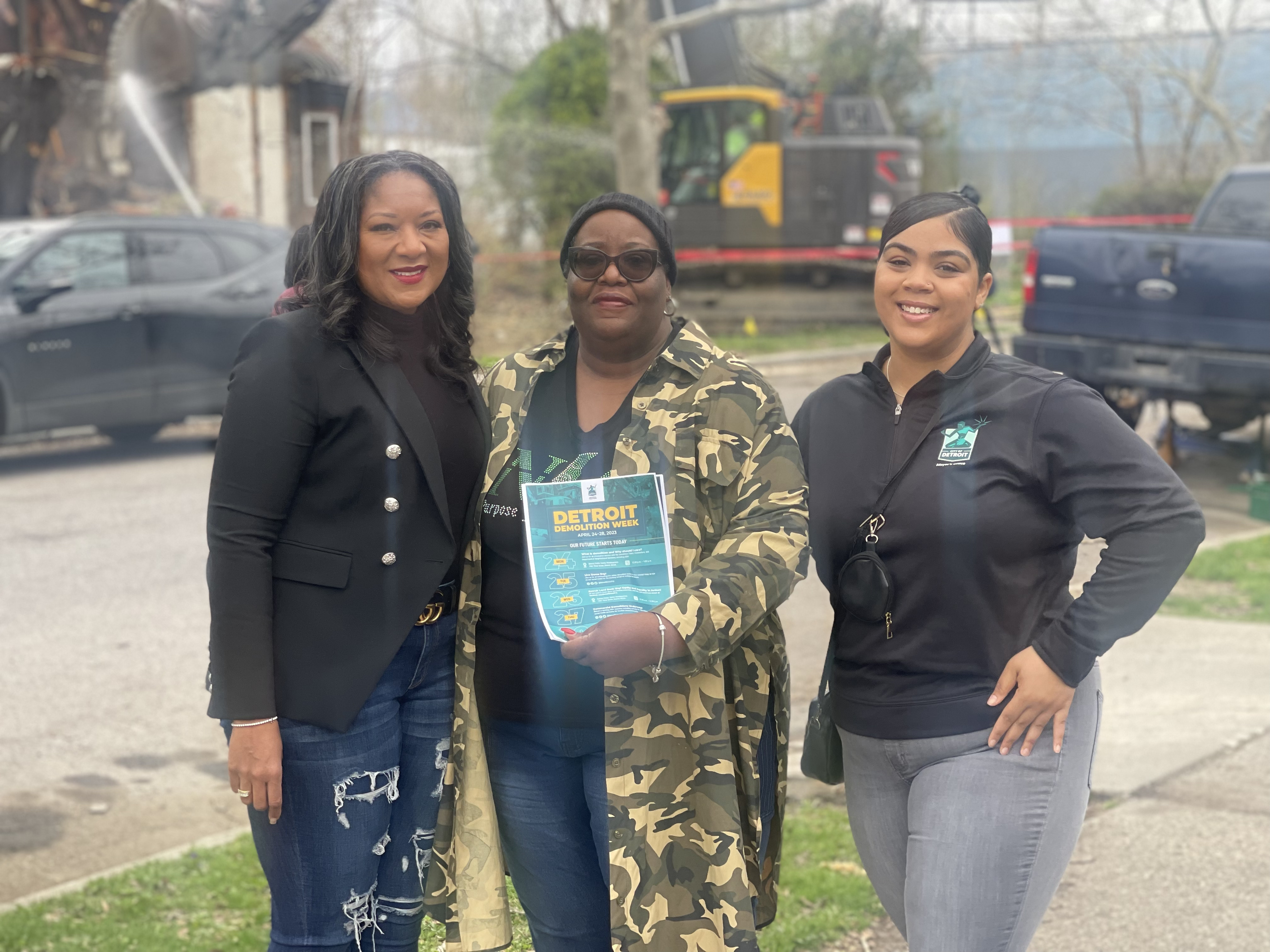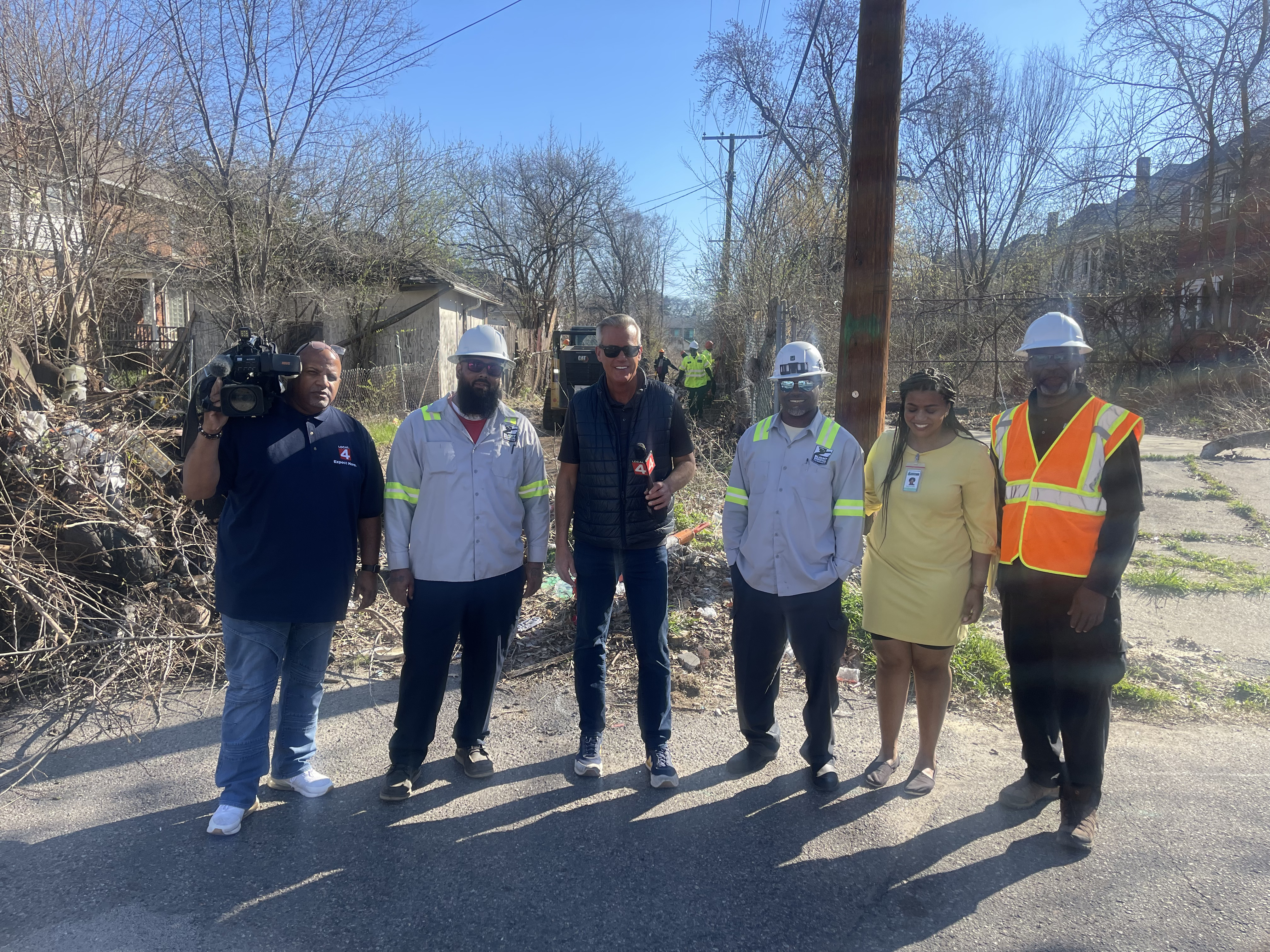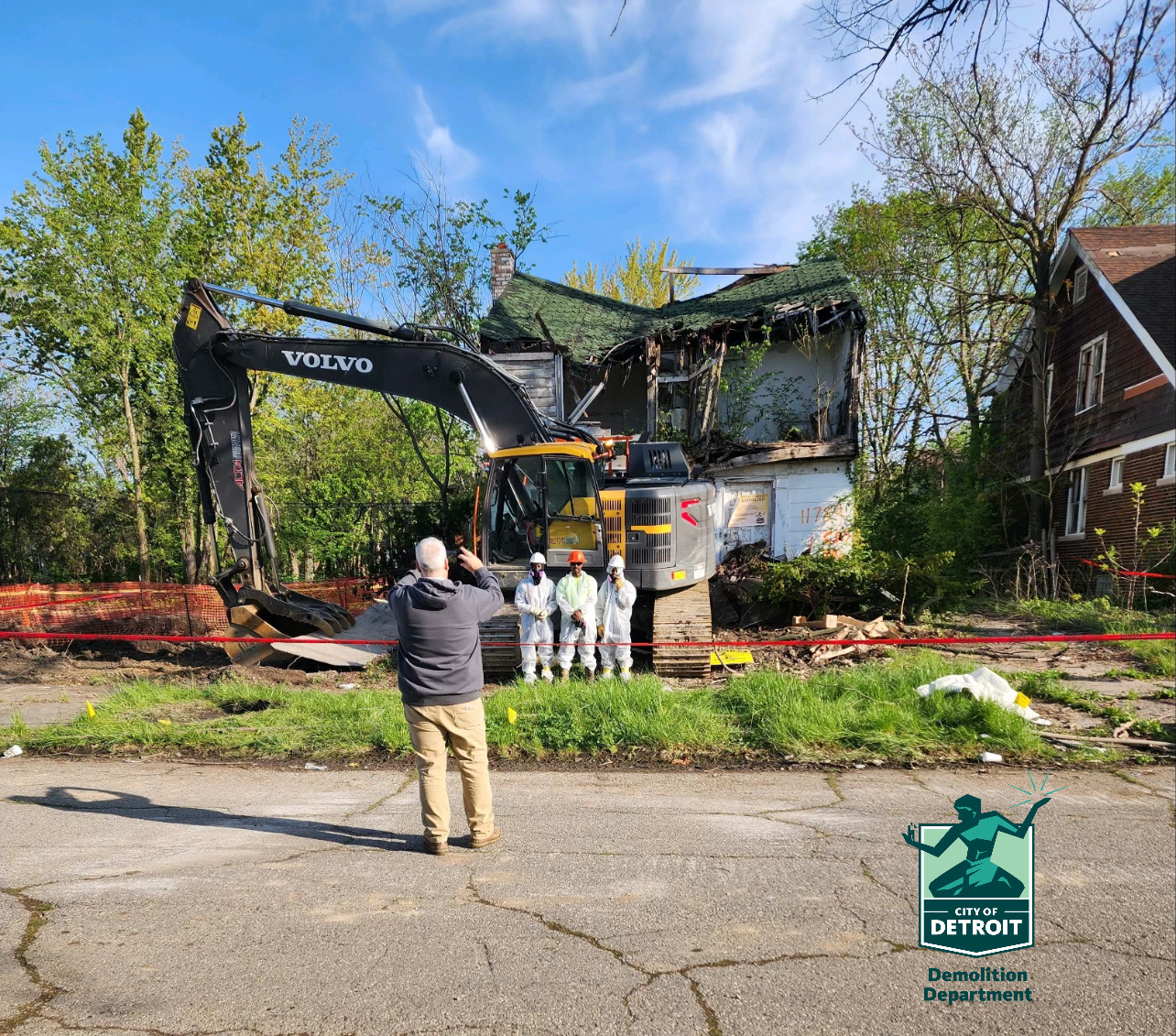Empowering Detroit Through Demolition
May 07, 2024
Detroit’s urban landscape has undergone significant changes in recent years, catalyzed by the establishment of the Detroit Demolition Department in 2020. LaJuan Counts, the department’s director, recently shared with the National Demolition Association (NDA) insights into the department’s inception, objectives, community engagement strategies and the significance of its work for the city’s future.
Prior to 2020, demolition efforts were disparate, lacking an official framework within the city. The department’s formation aimed to instill accountability 25and transparency, aligning with Detroit Mayor Mike Duggan’s vision to address blight and revitalize Detroit’s neighborhoods. Counts has been working with the city since 1997 and has a wealth of experience in operations and construction. This experience led to her appointment as director of the Detroit Demolition Department, spearheading efforts to create a cohesive and community-centric approach.

“Ultimately, they wanted somebody who would be responsible and accountable — somebody who the residents can communicate and have direct contact with to share their concerns,” Counts says.
The department’s primary objective is to demolish 8,000 properties, a part of a larger initiative that has seen over 22,000 homes torn down. Counts emphasizes a proactive approach to address future demolitions promptly, diminishing the accumulation of blighted properties that hinder neighborhood progress.
“We have a plan in place where we’re going to attack houses as they come instead of waiting and letting them pile up into large groups where we then have to repeat this massive scale of demo,” Counts says.
Central to the department’s ethos is community engagement. “Part of our problem in the very beginning was addressing significant mistrust in the community,” Counts says. “They didn’t believe anything we said.”
To foster trust and transparency, the department initiated extensive outreach efforts, engaging residents through block club meetings, virtual gatherings and city council sessions. These interactions aimed to dispel misinformation, clarify the demolition process and allow residents to voice concerns while providing updates on the status of multiple properties.

In April 2023, the department hosted Detroit Demolition Week, inviting the public to witness demolition processes firsthand. This initiative not only educated residents but also aimed to enlighten city council members and various departments, fostering a deeper understanding of the department’s operations and the community’s needs.
“At the end of the day, we want everyone to know as much about demo as they can,” Counts says. “That goes to our transparency; we have nothing to hide here.”
The department collaborates intentionally with organizations like NDA and plans to engage younger demographics by introducing construction and demolition opportunities to middle school students. Counts’ vision focuses on diversifying the industry, ensuring representation and opportunities for minority groups historically underrepresented in construction.
Regarding the workforce, while the department contracts demolition work, it has encountered challenges in finding skilled laborers and operators. Counts highlights the importance of fostering a positive work culture and inclusivity, welcoming individuals from diverse backgrounds, including those with past convictions. Notably, the department’s commitment extends beyond demolition; it aims to support Detroit-headquartered businesses, prioritizing contracts for companies with majority Detroit resident employees, encouraging equitable participation and economic development.

Counts’ personal commitment to empowering future generations, particularly young African American women, resonates deeply. Her dedication to showcasing opportunities in the construction industry echoes a broader mission to bridge gaps and provide avenues for underrepresented individuals.
“When I was offered the position, I took it solely based off of wanting the next generation of LaJuans to know that [this industry] is a possibility for them,” Counts says.
Counts hasn’t heard of many other cities doing what Detroit is doing, but she’s aggressively looking. “Usually, when we encounter other cities, their demos are not for the same reasons,” she says. “They’re doing demos so that they can make room for higher end or custom homes. Our demos are much more geared to public safety in nature. They’re more blight-driven than for high-end development.”

The Detroit Demolition Department serves as a beacon of community engagement, fostering transparency, inclusivity and economic development. Its initiatives not only demolish physical blight but also nurture a collaborative, empowered Detroit that other cities might be able to learn from.